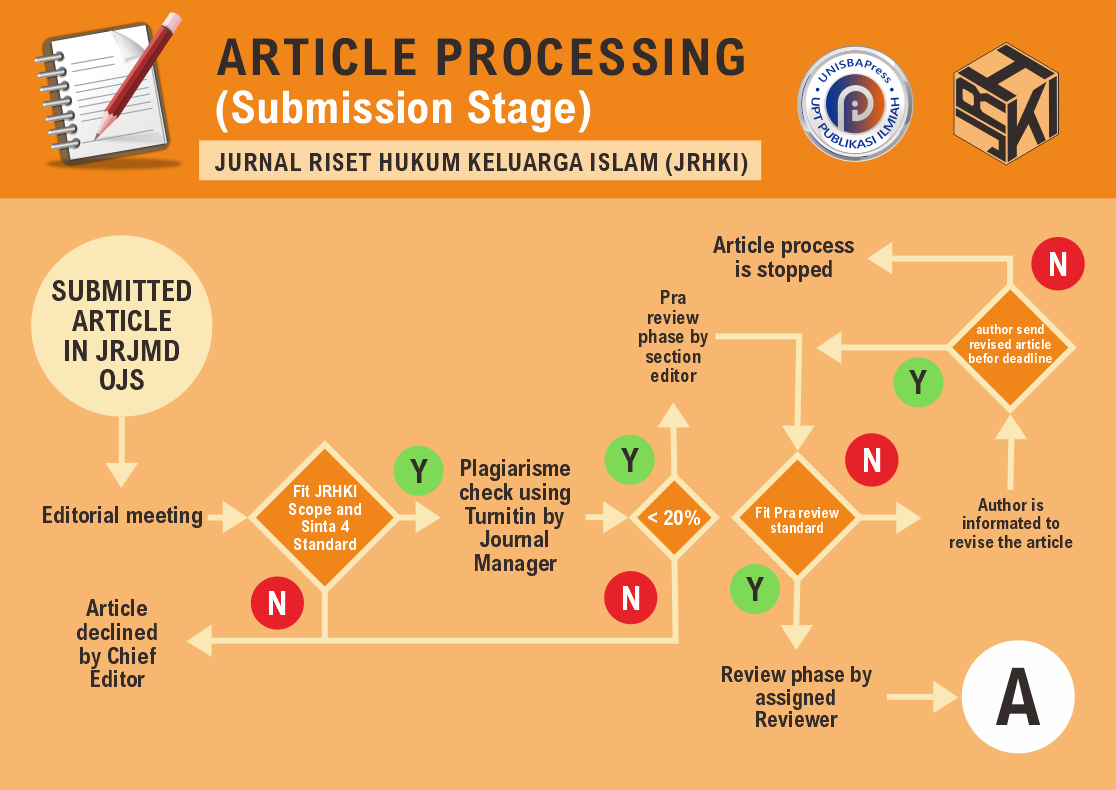Kedudukan Hukum Anak Hasil Incest menurut Putusan Mk No. 46/Puu-VIII/2010 dan Hukum Islam
DOI:
https://doi.org/10.29313/jrhki.vi.902Keywords:
Anak, Incest, NasabAbstract
Abstract. After the presence of the Constitutional Court Decision No. 46/PUU-VIII/2010 became a controversy among the public, because the decision was considered to provide a loophole for committing adultery. To limit this, the authors found the formulation of the problem, namely related to the legal position of incestuous children according to the Constitutional Court Decision No. 46/PUU-VIII/2010 and according to Islamic Law. The goal is to answer the analysis. The method used in this research is the normative juridical method by collecting data in the form of library research and using secondary data types with primary and tertiary materials. The results of this study according to the Constitutional Court Decision No. 46/PUU-VIII/2010 that the position of the child outside of marriage in question is a child from a betel marriage so that he will have a civil relationship with his mother and also his biological father. As well as the position of the child resulting from incest according to Islamic law has the right to get lineage only to his mother, but to get a living from his biological father. Therefore, children born out of wedlock, namely incestuous children or adulterous children, do not get guardianship from their fathers. So the guardianship fell to the guardian judge.
Abstrak. Setelah hadirnya Putusan MK No. 46/PUU-VIII/2010 menjadi kontroversi di kalangan masyarakat, karena putusan tersebut dianggap memberikan celah untuk melakukan perzinahan. Untuk membatasi hal tersebut maka penulis menemukan rumusan masalah yaitu terkait kedudukan hukum anak incest menurut Putusan MK No. 46/PUU-VIII/2010 dan menurut Hukum Islam. Tujuannya untuk menjawab analisis tersebut. Adapun metode yang digunakan dalam penelitian ini yaitu metode yuridis normatif dengan cara pengumpulan data berupa studi pustaka dan menggunakan jenis data sekunder dengan bahan primer dan tersier. Hasil dari penelitian ini menurut Putusan MK No. 46/PUU-VIII/2010 bahwa keududukan anak diluar perkawinan yang dimaksud adalah anak dari perkawinan sirih sehingga akan mendapatkan hubungan keperdataan dengan ibunya dan juga ayah biologisnya. Serta kedudukan anak hasil incest menurut Hukum Islam mempunyai hak yaitu mendapatkan nasab hanya kepada ibunya saja, akan tetapi mendapatkan nafkah dari ayah biologisnya. Oleh karena itu, anak yang dihasilkan di luar perkawinan yakni anak incest atau anak zina tidak mendapatkan perwalian dari ayahnya. Maka perwaliannya jatuh kepada wali hakim.
References
2. An-Nabhani, T. )2005). Asy-Syyakhshiyyah Al-Islamiyyah. Bandung: Muktamadah.
3. Arifin, S.) 2012). Penghantar Hukum Indonesia. Medan: Medan Area University.
4. Armanto, F. )2009). Hukum Perkawinan di Indonesia. Bandung: Nuansa Aulia.
5. Dewata, M. F. N. )2010). Dualisme Penelitian Hukum Normatif dan Emfiris. Yogyakarta: Pustaka Belajar.
12. Hartanto, P. S. )2008). Kedudukan Hukum dan Hak Waris Anak Luar Kawin Menurut Burgerlijk Wetboek. Yogyakarta: Laksbang Pressindo.
13. Hasan, M. A. )1998). Masail Fiqhiah Al-Hadist Pada Masalah Kontemporer Hukum Islam. Jakarta: PT. Raja Grafindo.
14. Hayatudin, A. (2019(. Ushul Fiqih Jalan Tengah Memahami Islam. Jakarta: Amzah.














